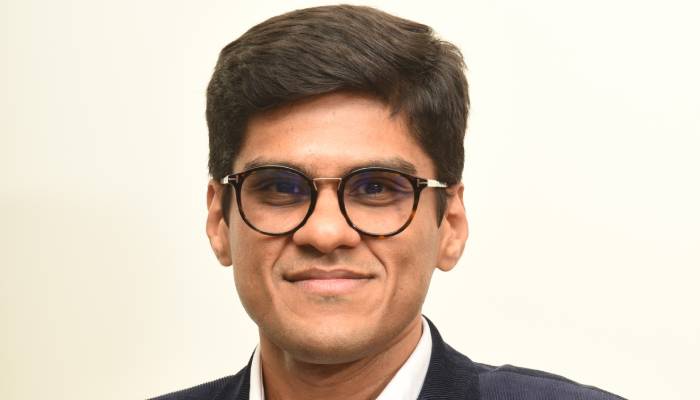By – Nishant Rathi, Founder and Director of NeoSOFT
Technology and innovation continue to be the backbone of global business transformation. NeoSOFT has identified key trends that will shape the IT landscape in 2025, enabling organizations to optimize operations, drive innovation, and create sustainable solutions. By adopting these technologies, businesses can remain competitive and future-ready.
Generative AI Will Redefine Automation and Personalization
Generative AI is rapidly transforming industries, enabling automation and personalization at an unprecedented scale. From automating content creation and decision-making to delivering AI-driven customization, these solutions are empowering businesses to innovate faster. As AI capabilities expand, enterprises will rely on advanced tools to harness its potential while ensuring ethical and secure deployment. Personalization at scale will redefine customer engagement, offering tailored experiences that enhance satisfaction and loyalty.
Blockchain Will Revolutionize Trust and Efficiency
Blockchain technology is set to become a cornerstone of digital trust in 2025. By decentralizing trust, blockchain ensures data integrity and transparency in critical applications like supply chain management, financial transactions, and digital identity verification. The rise of smart contracts—automated; tamper-proof agreements—will streamline processes, reduce operational costs, and eliminate intermediaries, making blockchain indispensable for businesses seeking secure and efficient operations.
Quantum Computing Will Unlock New Frontiers
Quantum computing is poised to revolutionize problem-solving and data analysis across industries. With breakthrough computational power, quantum technologies will tackle complex challenges in drug discovery, logistics, and cryptography. Advanced simulations in material science, finance, and climate modeling will drive innovation and optimization. As the technology matures, businesses will explore its transformative potential to solve problems that were previously insurmountable.
IoT Will Drive Real-Time Connectivity and Efficiency
The Internet of Things (IoT) will continue to expand its role in creating interconnected digital ecosystems. By facilitating real-time monitoring and data collection, IoT devices will empower industries like healthcare, agriculture, and smart cities to make data-driven decisions. Predictive maintenance and automation will reduce resource wastage and enhance efficiency in manufacturing and logistics, solidifying IoT as a cornerstone of operational excellence.
Serverless Architecture Will Simplify Innovation
Serverless technologies will redefine application development by eliminating server management overhead. Developers will focus on creating innovative solutions while leveraging dynamic scaling to ensure seamless performance during high-traffic periods. This approach not only accelerates development cycles but also delivers cost-efficient and agile solutions, making serverless architecture a preferred choice for event-driven applications and microservices.
Big Data Will Power Informed Decision-Making.
Big Data remains a critical driver of enterprise strategy, enabling businesses to process large datasets for actionable insights. Advanced analytics and machine learning will uncover trends, optimize operations, and improve customer personalization. By leveraging real-time analysis, organizations will tailor their offerings to meet evolving customer demands, ensuring competitiveness in a data-driven world.
Dynamic and Interactive Design Will Revolutionize User Experiences
Dynamic and interactive design is set to transform user experiences by creating responsive, engaging, and personalized digital interfaces. Leveraging advanced design frameworks, adaptive layouts, and real-time feedback mechanisms, businesses can enhance customer engagement across platforms. These designs will enable immersive interactions, boosting user retention and satisfaction. Real-time data integration will allow for interfaces that adapt to individual preferences, ensuring relevance and improved usability.
Smart Wearables Will Lead the Digital Lifestyle Revolution
Smart wearable devices are emerging as a pivotal force in the digital health and lifestyle ecosystem. By integrating IoT, AI, and real-time analytics, wearables will offer enhanced health monitoring, productivity tools, and seamless connectivity. These devices will empower users to proactively manage their health by tracking vital signs, physical activity, and sleep patterns. IoT-enabled connectivity will ensure synchronization with smartphones and other platforms, providing real-time insights and updates, thereby blending technology with everyday utility.
Innovation for the Future
NeoSOFT emphasizes that businesses must embrace a culture of experimentation, upskill their workforce, and invest in emerging technologies to stay ahead. By leveraging these trends, organizations can unlock new opportunities, enhance operational efficiency, and create a sustainable and inclusive future.
In 2025, technology will not just transform industries but also empower societies to achieve unprecedented advancements in sustainability, healthcare, and digital connectivity. The ability to adapt to these dynamic shifts will define long-term success in an ever-evolving landscape.


